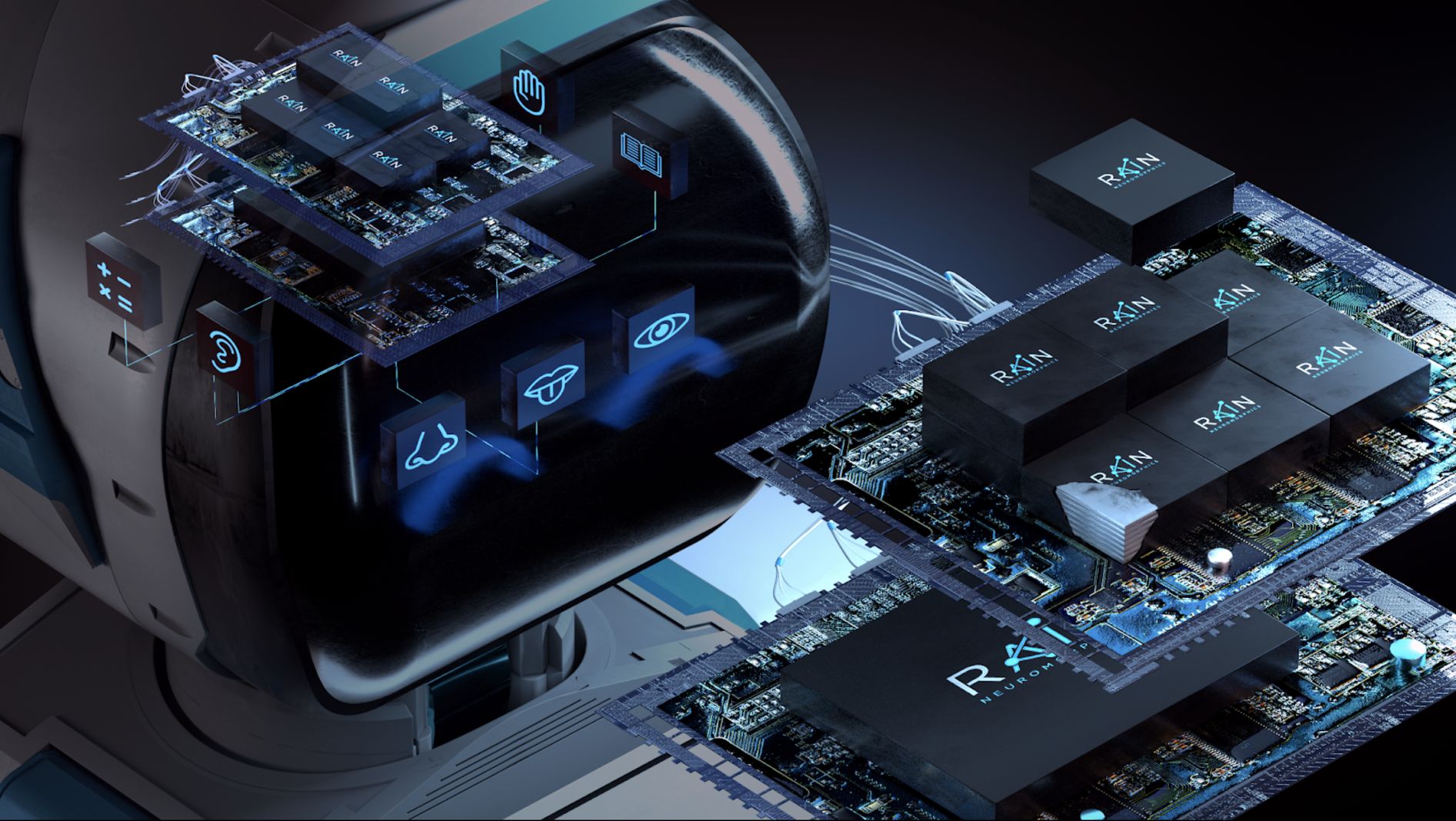OpenAI to buy neuromorphic AI chips for $51 million

OpenAI, under CEO Sam Altman, has signed a non-binding letter of intent to spend $51 million on AI chips from Rain AI, a startup backed by Altman himself.
Rain AI is developing a neuromorphic processing unit (NPU) that mimics the functions of the human brain. The company could ship its first hardware to customers in October 2024.
Rain's NPU is said to offer 100 times more processing power and 10,000 times more energy efficiency for AI training than GPUs currently used by AI developers.
Rain says it has been in talks to sell chips to Google, Oracle, Meta, Microsoft, and Amazon.
Neuromorphic chips are hardware designs that mimic the way the human brain works to make artificial intelligence and machine learning more efficient. Unlike traditional computer chips based on von Neumann architectures, neuromorphic chips are specifically designed to simulate neural networks directly at the hardware level.
This enables real-time processing and reduces power consumption for AI applications. Rain AI's chips are used for training and inference tasks.
AI chips are big business
OpenAI signed the letter of intent to purchase $51 million worth of chips back in 2019. Sam Altman has personally invested over $1 million in Rain AI.
Deal documents obtained by WIRED for a $33 million funding round in April 2022, led by Prosperity7, cite Altman's personal investment and Rain's letter of intent with OpenAI as reasons for backing the company.
The investment is an example of how Altman's investments intersect with his duties as CEO of OpenAI. Altman is also said to be trying to launch an AI chip startup. The low availability and high costs of Nvidia's AI chips currently represent a bottleneck in AI development.
Looking at Nvidia's Q3 2023 sales figures alone, the reported purchase of $51 million worth of chips is a comparatively small amount. The company increased its revenue by 206 percent year-over-year, generating 14.51 billion from datacenter products alone, including graphics processing units (GPUs).
The largest customers were Microsoft (OpenAI) and Meta with 150,000 cards each. Google, Oracle, Amazon, and Tencent each purchased 50,000 GPUs.
US regulation affects Rain AI
Saudi Aramco's venture capital company Prosperity7 was recently forced by a US government order to sell its stake in Rain AI. It went to the investment company Grep VC from Silicon Valley, reports Bloomberg.
The move came after a review by the Committee on Foreign Investment in the United States (CFIUS), the main US regulator for transactions affecting national security.
The development reflects the increasing scrutiny of Middle Eastern asset funds in the US, particularly those with close ties to China and related to AI, which pose potential national security risks.
AI News Without the Hype – Curated by Humans
As a THE DECODER subscriber, you get ad-free reading, our weekly AI newsletter, the exclusive "AI Radar" Frontier Report 6× per year, access to comments, and our complete archive.
Subscribe nowAI news without the hype
Curated by humans.
- Over 20 percent launch discount.
- Read without distractions – no Google ads.
- Access to comments and community discussions.
- Weekly AI newsletter.
- 6 times a year: “AI Radar” – deep dives on key AI topics.
- Up to 25 % off on KI Pro online events.
- Access to our full ten-year archive.
- Get the latest AI news from The Decoder.